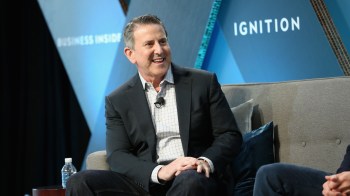There is no magic number, no infallible rule of thumb that that solves the retirement savings equation: How much do I need to save to have a decent standard of living in old age? It’s easy to spin a tale of gloom and doom. Yet I think most people will find that their vision of a good retirement is a variation on the life they’ve lived and the activities they’ve enjoyed all these years. In other words, expenses matter. In general, household expenses decline with age.

A recent study by the Employee Benefits Research Institute — Expenditure Patterns of Older Americans, 2001-2009 — suggests that household spending from Age 65 declines by 19 percent by Age 75, 34 percent by Age 85, and 52 percent by Age 95.
The biggest expenses for older Americans are the home and home-related items. On average, people who are 50 and older spend 40 to 45 percent of their budget on the home. Health care is the second-biggest expenditure on the household ledger. It rises from about 10 percent of the budget for those 50 to 64 to 20 percent for folks 85 and older.
Two budgetary lines fall with age: transporation and entertainment. Food and clothing remain relatively flat.
Still, it pays to think broadly about spending when trying to design a realistic budget. I got a note this morning from Henry “Bud” Hebeler, the founder of retirement website Analyzenow.com.
He’s always pushing for people to get more realistic about their savings and avoid the siren songs of Wall Street. (If you just invest with me, you’ll get an 8 percent return on your money. That sort of tune.) I always learn from him.
He just got back from the wedding of a grandson. On the way home, he wrote down a list of experiences and values that many of us will spend money on in retirement.
A list like his is worth thinking through when you start planning your retirement. It’s easy to cut back on spending on paper. But you should think outside the list of conventional items, like the mortgage, utilities, food, clothes and health care.
Many of the expenses he talks about are the kind of events and moments we want to spend our money on. Count on it, and plan for it.
Here’s the list he jotted down, (very) slightly edited:
When planning for retirement, few people remember to make allowances for their children. Their children get married and have babies. This will cost you money when they get married or have their own children, whether near your home or in a city far away.
We just recently went to a grandson’s wedding. Understand that we are grandparents, so we don’t have to pay for the wedding itself — which can be very expensive in its own right. But we have to travel. Let’s see, $800 for airplane tickets, $400 for car rental, another $400 for the motel, $300 for restaurants. Without accounting for a gift, that’s almost $2,000.
But we have 13 grandchildren scattered around the country. And what happens when those great grandchildren are born? Grandma just has to see them.
Or how about helping out a child with a serious ailment who lives across the country? Or a daughter or son that remarries — maybe to a more acceptable person in your eyes.
Then there are the deaths of parents who may have lived far away. Here you have to add your share of funeral expenses if their estate had not already planned for the inevitable.
And, believe it or not, retired people have “vacations.” These can really up the ante.
And what happens when your roof has to be replaced? Borrowing money in retirement can be very expensive.
There’s a lot happening in the world. Through it all, Marketplace is here for you.
You rely on Marketplace to break down the world’s events and tell you how it affects you in a fact-based, approachable way. We rely on your financial support to keep making that possible.
Your donation today powers the independent journalism that you rely on. For just $5/month, you can help sustain Marketplace so we can keep reporting on the things that matter to you.


















